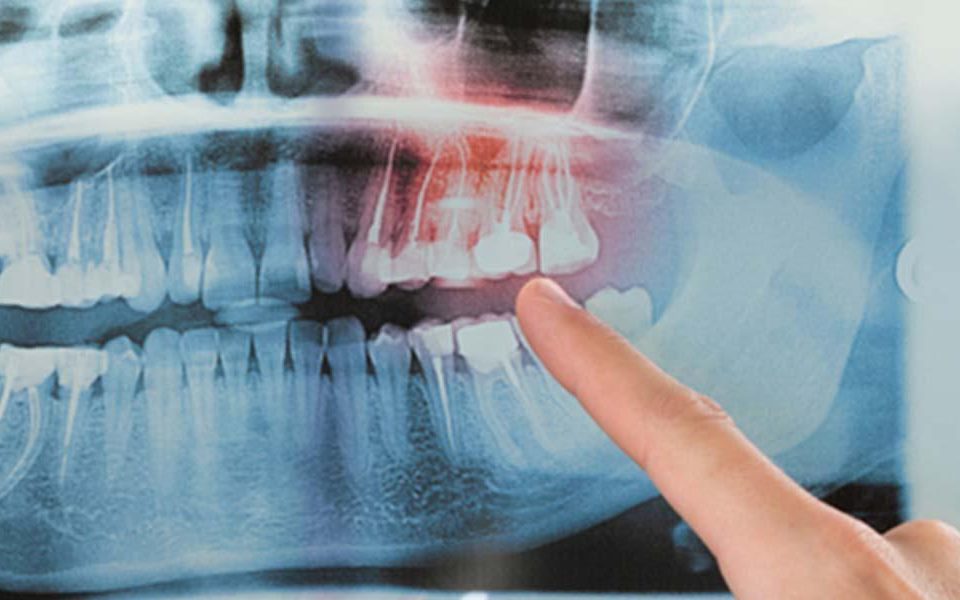
Gum Bleaching, Whitening and Lightening: What You Need to Know
June 2, 2022
Your Guide to Flossing
July 20, 2022Braces, retainers and whitening treatments can all help you achieve the smile you’re looking for. But what about veneers? This permanent treatment can give you the appearance of straight, natural-looking teeth, and veneers can last for up to 20 years with proper care. So, how do veneers work?
We’ll tell you what you need to know about veneers and how to decide whether they’re right for you.
What Are Veneers?
Veneers are porcelain or composite resin shells that cover the teeth. The history of veneers started in the early 20th century with a Hollywood dentist who created them for stage and film actors. They soon spread in popularity among average people who wanted the appearance of permanent, natural-looking teeth.
[Related: How to Whiten Your Teeth]
Veneers can close gaps, adjust the appearance of crooked teeth, and overall make teeth look more uniform and aesthetically pleasing in shape and color. Their permanent, comfortable feeling helps patients who get them adjust easily to veneers after just a few months.
Process of Veneers
How do veneers work? The dental procedure to get veneers is fairly straightforward. First, you’ll meet with your dentist for a consultation. You and your dentist will discuss your concerns, your budget and insurance plans, and your expectations.
Using a digital scanner or plaster, your dentist will sometimes make preliminary mock-up models to show you what to expect. Once you both decide on a final shape, your dentist will take an impression of your teeth to send to the lab to create your veneers.
Once your veneers come back, your dentist will shape your existing teeth so that the new veneers fit naturally over the top. Your dentist will use dental bonding cement to attach the veneers and then polish them to look like natural teeth.
[Related: 5 Signs You Might Need Endodontic Surgery]
What Aren’t Veneers Good For?
Before you ask about getting veneers, you should know what this type of dental procedure doesn’t fix.
Because getting veneers is a cosmetic procedure, they won’t help serious dental problems. This means if you suffer from periodontal disease or tooth decay, veneers won’t be the right solution, and you won’t qualify for the procedure.
You should also be up-front with your dentist during your consultation if you grind your teeth or bite your nails. These habits put you at greater risk for damaging veneers, which in turn can do serious damage to your wallet.
One last thing to remember is that veneers are a permanent treatment. Because your dentist will have to reshape your actual teeth before the bonding, reversing veneers isn’t possible. So make sure veneers are the right answer before you undergo the procedure.
[Related: How to Deal With Minor and Major Tooth Pain]
Benefits of Veneers
Veneers have many cosmetic benefits, including the following:
- Correcting the appearance of chipped or cracked teeth
- Giving a whiter appearance to teeth that don’t respond to traditional lightening techniques
- Closing gaps between teeth
Porcelain veneers are also extremely durable and natural-looking. They come in a variety of white shades, mimic the light-reflecting quality and texture of normal teeth, and are resistant to stains.
Overall, veneers can help you attain the perfect smile you’ve been looking for. They make your teeth look better and give you the confidence that comes with a white, straight-looking smile that can last for decades.
[Related: Scaling and Root Planing]
Contact Cascadia Dental Specialists Today!
Now that you know how veneers work, feel free to contact us with any questions or concerns about it. If you’d like to schedule a consultation to see whether veneers are right for you, please contact Cascadia Dental Specialists at (425) 644-7444, on our web contact form or via email at info@cascadiadental.com.
We’ll speak with you soon!
Featured image via Pexels



